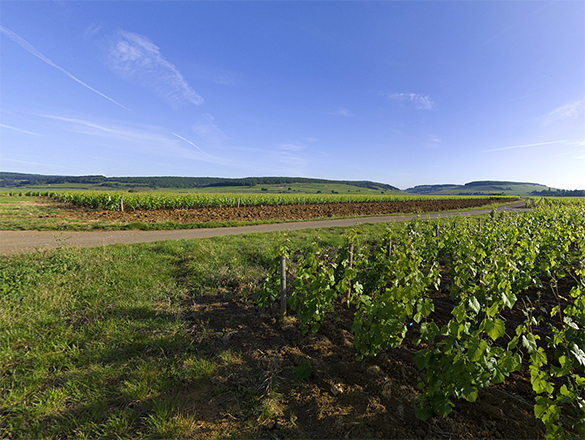

The vineyards of Bourgogne produce some great wines with a historical and international reputation. However, the region is not simply limited to its iconic appellations. In addition to its Village Premier Cru and Grand Cru AOCs, it also produces a range of wonderful Régionale and Village appellations to explore.
You will also find a full list of the Bourgogne’s Climats and lieux-dits on this page.
Check out the complete list of the 84 Bourgogne appellations.
However, your exploration has only just begun. Bourgogne wines have never before offered such high quality. Besides our range of internationally celebrated wines, try some of our lesser-known appellations where there are lots of surprises in store.
And for a fun way to find out more about the wines on offer, try out our “Which Bourgogne wine is right for me?” quiz, or check out Bourgogne Maps to take an interactive tour of the region.
Village appellation
VIGNOBLE DE LA CÔTE DE BEAUNE
31 juillet 1937
Almost entirely reds - Pinot Noir.
Whites - Chardonnay.
Area under production*:
1 hectare (ha) = 10 000 m² = 24 ouvrées.
Reds: 125.60 ha
Whites: 13.32 ha
Average annual yield**:
1 hectolitre (hl) = 100 litres = 133 bottles.
Reds: 5,417 hl
Whites: 572 hl
*In 2022 **5-year average, 2017-2021
Appellation Village of the Côte de Beaune wine-growing region (Côte-d’Or).
The red wines from the producing area of this appellation are entitled to the alternative appellation CÔTE DE BEAUNE-VILLAGES.
Producing commune: Chorey-lès-Beaune.
On the label, the appellation may be followed:
- either by the name of the plot of origin.
- or by the words Côte de Beaune (red wines only).

This light and supple red wine is moderately tannic but rich and characterful. Quite vividly coloured, it is often dark crimson with purplish highlights. The nose is dominated by small red fruits (raspberry, Morello cherry) and black fruits (blackberry) set off by notes of liquorice and underbrush. With age it evolves towards strawberry preserves and gingerbread with animal and leather notes. It is well-built with noticeably elegant tannins. Its well-rounded structure leaves an aftertaste of fruit on the palate. The whites are light gold in colour and the aromas of the Chardonnay recall white flowers, hazelnut and lemon-grass. Rather lively when young, this well fruited wine quite rapidly acquires a smoothness which evolves into worthy body, length and lusciousness.

The subtlety, delicacy and refined tannins of red Chorey make it highly adaptable, a fine match for cold cuts, hot main dishes, or giblets, while its appealing and fluid structure gently partners balanced and harmonious dishes such as roast fowl, pizzas or boiled beef. It is also an ideal choice to go with Tex-Mex cuisine which gets an uplift from its fluidity and its fruity perfume.
Chorey is an ideal “summer red”, equally at ease with tabouleh or cold meats.
Serving temperatures: 12 to 13°C for young wines, 15 to 16°C for older wines.

Chorey-lès-Beaune lies on the lower slopes of the Côte de Beaune. Its near neighbours are Aloxe-Corton and Savigny-lès-Beaune. Its wines, generous and approachable, offer an excellent introduction to Bourgogne’s AOC Village. For a long time in the past they were sold under the names of their more prestigious neighbours but their body and bouquet fully entitled them to their own appellation Village which they were granted in 1970. The vineyards grow mainly Pinot Noir grapes but white grapes (Chardonnay) are taking an increasing share of total production.

Soil: limestone-marl alluvium, ferruginous in places, over stony subsoil, formed by millennia of up-slope erosion. Towards Aloxe-Corton are beds of alluvial gravels, rich in calcium rich rocks called “chailles” and towards Savigny-lès-Beaune beds of clay with pebbly limestone.
